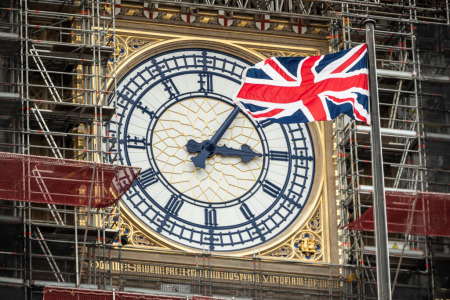Church leaders divided on Brexit bell ringing to celebrate leaving EU

Brexit supporters' desire to have church bells ring in celebration of the United Kingdom formally leaving the European Union is not proving to be a unifying topic among church leaders.
Following Prime Minister Boris Johnson's landslide election victory in December, where the Tory party gained 48 seats in Parliament and was seen as a contest centering on Brexit, many campaigners and parliamentarians said they wanted to hear church bells ring at 9 a.m. on Feb. 1 to mark the first day of being untethered to the EU, the U.K. Sunday Times reported.
Yet the body that represents the church bell ringers, the Central Council of Church Bell Ringers, which was founded in 1891, has refused to back the ringing of the bells for these events, maintaining that ringing should not occur for political reasons.
Many also wanted Big Ben to chime at 11 p.m. on Jan. 31 to indicate the moment Brexit begins but that might not happen given that the iconic clock tower has been silenced for years to perform repairs. Although its bongs are not expected to be sounded until 2021, Johnson said Tuesday that it might be possible to crowdfund £500,000 ($651,533) needed to restore the bell’s clapper and delay the refurbishment work.
“We’re working up a plan so people can bung a bob for a Big Ben bong, because there are some people who want to,” Johnson said.
As of Sunday morning, supporters have raised over £260,800.
"StandUp4Brexit, the organization behind the crowdfunder, says if it does not reach the target, the money will be donated to veterans' charity Help For Heroes," the BBC reported.
Brexit Party chairman Richard Tice told the BBC's "Today" program that he did not believe the £500,000 figure was correct, noting that the government made sure Big Ben rang on New Year's Eve.
While only vicars can decide when and for what occasions church bells are to be rung, Leave.EU campaigners told the Sunday Times, "If the powers that be don't like it? We'll do it anyway."
“There are historical moments for which bells have been rung, [the] end of world wars for example. However, the central council, as a principle, does not endorse bellringing for political reasons,” the Central Council of Church Bell Ringers told the Sunday Times, noting that bell ringing groups have “discretion to ring for such occasions."
Alan Wilson, the bishop of Buckingham, said: “Two thirds of the population never voted for Brexit in the first place. It’s deeply divisive to ring church bells for something like this. Churches are there for the whole community, not for a political faction to crow over people they have beaten.”
Other bishops and vicars have also weighed in, concurring that the bells should not be rung to mark Brexit given the divisiveness of the issue, though not all are universally opposed.
The Rev. Andy Bawtree, the vicar of St Peter & St Paul in River, Kent, wants his bells to ring but says he will discuss it with his local church council first, the Sunday Times added.
In June 2016, U.K. voters went to the polls in a referendum and voted to leave the European Union, 52 percent to 48 percent. The result was unexpected and roiled U.K. politics for over three years.
Johnson's negotiated Brexit deal passed the House of Commons on Jan. 9.





















